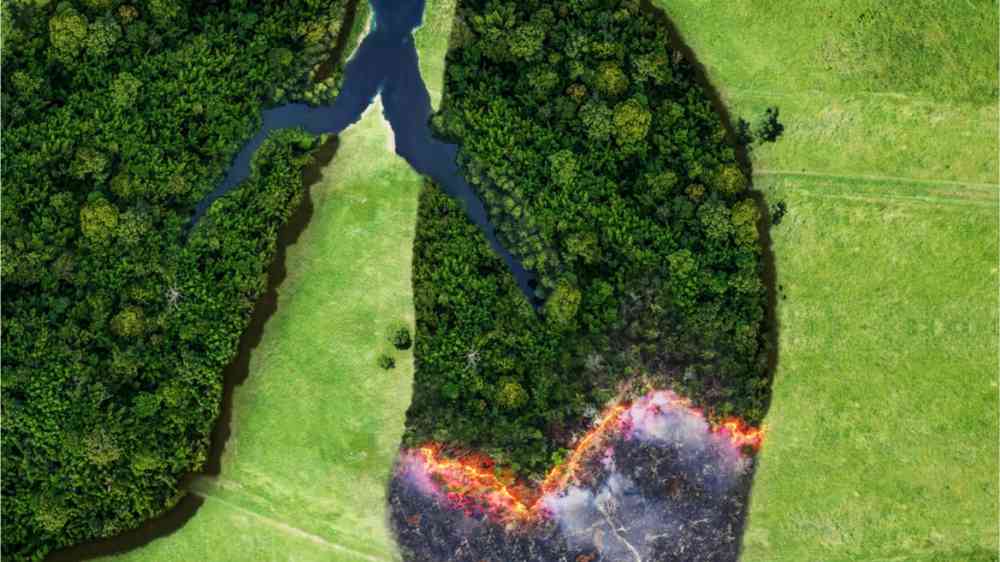Lancet Countdown report calls for climate-driven health action

Today, the world faces a daunting reality as the climate crisis takes center stage, amplifying global emergencies and threatening to unravel decades of progress in public health.
The 8th annual report of the Lancet Countdown on Health and Climate Change, released today, has shed light on the alarming convergence of factors that jeopardize the well-being of individuals, public health, and healthcare systems on a global scale.
The climate crisis manifests itself through various pathways, including the exacerbation of food insecurity, the proliferation of climate-sensitive diseases, and the increasing frequency and intensity of extreme weather events. These combined factors are placing unprecedented strains on the world’s health systems, calling for immediate and comprehensive action.
“WHO is very pleased to contribute to this critical report, highlighting trends, and playing a key role in shaping urgent responses to address the pressing challenges posed by the health and climate crisis,” said Dr Maria Neira, WHO Director for Environment, Climate Change and Health. "The path to a sustainable future starts with taking bold and urgent steps, transitioning to renewable energy, reducing emissions across all sectors, and building adaptation and resilience, to name just a few. The upcoming COP28 will be a watershed moment to address health, with the potential for ambitious outcomes that will ensure a healthier and more resilient world."
The Lancet Countdown Report reveals that the health impacts of climate change are surging worldwide, causing a devastating toll on lives and livelihoods. Adults over 65 years of age and infants under one year old, who are particularly vulnerable to extreme heat, are now experiencing twice as many heatwave days per year than they would have in 1986-2005. The increasing destructiveness of extreme weather events jeopardizes water security and food production, putting millions of people at risk of malnutrition. The alarming statistics of more frequent heatwaves and droughts were responsible for 127 million more people experiencing moderate to severe food insecurity in 122 countries in 2021, compared the annual numbers seen between 1981 and 2010.
Similarly, a changing climate is accelerating the spread of life-threatening infectious diseases. For example, warmer seas have increased the area of the world’s coastline suitable for the spread of Vibrio bacteria that can cause illness and death in humans by 329km every year since 1982, putting a record 1.4 billion people at risk of diarrhoeal disease, severe wound infections, and sepsis.
The threat is particularly high in Europe, where Vibrio-suitable coastal waters have increased by 142km every year. These rising risks of climate change are also worsening global health inequities. Health systems are increasingly strained, and 27% of surveyed cities declared concerns over their health systems being overwhelmed by the impacts of climate change.
While the urgency of today's health threats is evident, it also serves as a dire warning of the dangers looming on the horizon. As the report underscores, the world is heading in the wrong direction, continuing its dependency on fossil fuels and leaving the most vulnerable communities behind in the essential transition to sustainable energy sources.
The implementation of the Paris Agreement is not only a global imperative for the environment but a critical public health necessity. Failing to take meaningful action toward the Agreement's 1.5°C goal will result in severe consequences for humanity and its health. More children will suffer from malnutrition, outbreaks of diseases will become more frequent and widespread, and deaths from respiratory diseases will continue to rise. The choice is clear: we must act now.
A holistic, health-centered approach is needed to address the climate crisis. Health-centric climate action holds the potential to save millions of lives annually and promote health equity. At its core, this approach upholds the human right to health, closely intertwined with the right to a clean, healthy, and sustainable environment.
WHO strongly supports the call to action outlined in the Lancet Countdown Report. It is imperative that we bolster climate resilience while championing low-carbon and sustainable pathways. To transform today's crises we must invest in sustainable, climate-resilient health, food, water, and sanitation systems accessible to all.
WHO urges governments to lead the way with a just, equitable, and rapid phase-out of fossil fuels, transitioning toward clean and renewable energy sources. This transition will not only mitigate climate change but also enhance air quality for 99% of the global population, reducing air pollution's detrimental effects.
As the 28th Conference of the Parties to the United Nations Framework Convention on Climate Change approaches next month in the United Arab Emirates, WHO invites all nations to bring health into the center of international climate action. We must work together to ensure a prosperous future for all, with a focus on protecting the health and wellbeing of present and future generations.